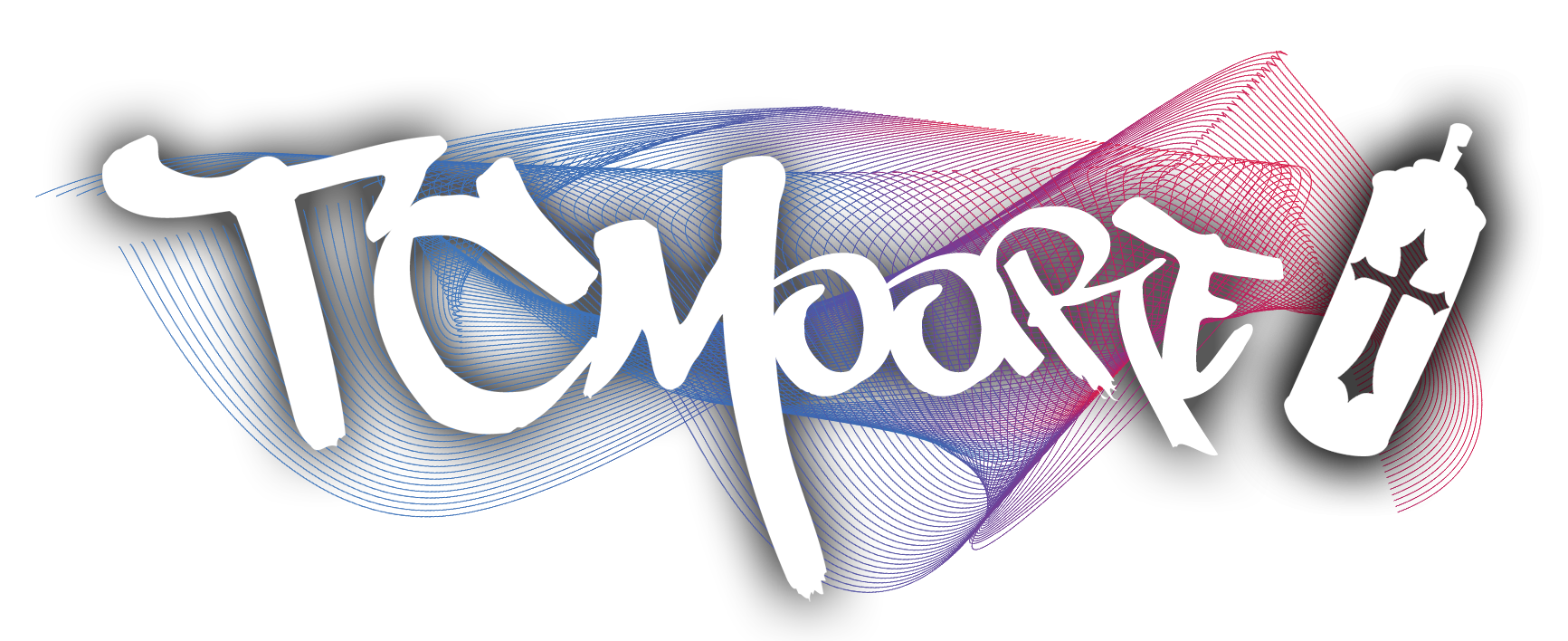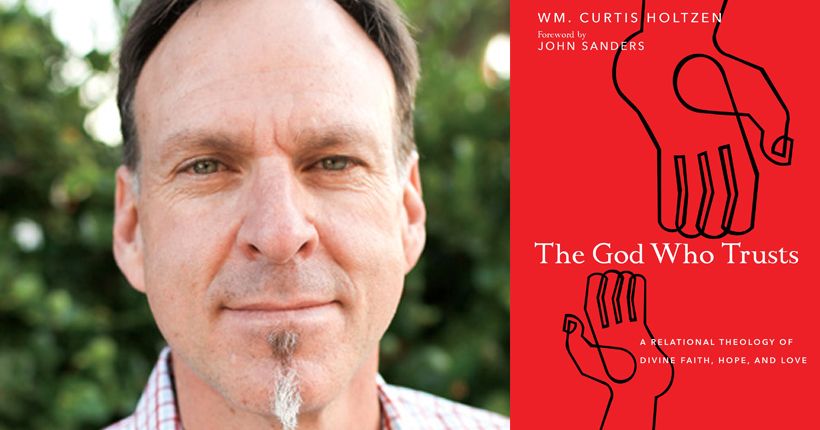If God is Love… and Love Always Trusts… Does God Trust?
Several years ago I was serving as a pastor on the staff of an urban, multiethnic church plant in downtown LA. The lead pastor went on sabbatical for several months and invited various guest speakers to preach while he was away. One of those guest preachers was a pastor whose church I knew was affiliated with The Gospel Coalition (a popular Neo-Calvinist/Neo-Puritan [1] group). When I saw that he’d selected First Corinthians 13 as his text for the week, I’ll admit I was a bit intrigued. I rarely hear sermons preached on this passage outside homilies at weddings. If I’m completely honest though, I don’t remember much of that sermon. I had a lot of responsibilities on Sundays even before the sabbatical, and our church was routinely plagued on Sunday mornings with proverbial fires to put out, so I was even more busy than usual. But, what I do vividly remember was when the preacher said that a helpful tip he’d learned and practiced for many years was replacing the word “love” in First Corinthians 13 with “Jesus,” because (according to First John) “God is love.” This was a new idea to me and I found it fascinating. Suddenly there was a new place in the New Testament where we have a tidy list of attributes for the God revealed in Christ which I’d never seen as that before. So he preached passionately about how Jesus is “patient” with us, and “kind” toward us, and that Jesus “never fails” us. But then he completely lost me when, suddenly, he went out of his way to say that certain attributes of love don’t apply to God at all.“Faith is believing in something that you cannot see with your eyes. But yet the scriptures tell us that God knows and sees everything. So this means that God doesn’t have faith like you and I do. God doesn’t have faith because he sees everything. God doesn’t have hope because he knows everything.” [2]‘Now, wait a second!’ I thought. If the biblical formula this preacher was employing here was:
A) “God is love” from First John 4
+ B) “Love is x” from First Corinthians 13
= C) Attributes of God
Then how was he able to exclude “faith” and “hope” as inappropriate for God? Well, this preacher isn’t alone at all. Historically, very few Christians have ever posited that God exercises faith or hope, not even trust. The vast majority of Christians have precluded these from God’s capacity because of presumed attributes like “omniscience,” “immutability,” and “impassibility.” These attributes (and others like it), are derived more from Greek philosophy than the Bible, and they set God far outside the world of mere mortals. According to this common understanding, God is “above” having faith and “beyond” hope or trust.Enter Open Theism
Thankfully, there’s been a revolution going on for several decades now against this classical conception of God among some Christians (some evangelicals and others) who have been unsatisfied by this theology both philosophically, biblically, and experientially. The umbrella term for this theological movement is “Open and Relational Theologies.” [3] Under this broad coalition of theologies, there are several constants. For starters, God is primarily conceptualized as love. This not only has moral or ethical ramifications, it also has metaphysical ones. The God who is love is necessarily the God who grants freedom to creatures. So, Open and Relational theists are Free Will Theists as opposed to Determinists. The majority of Open and Relational theists also understand this freedom-granting God to also face a partly indeterminate future along with creatures. This means the God who is love is also the God of the possible—the God who risks creating free creatures in the hopes of mutuality and reciprocity. But, even very few Open and Relational theists have explored what it actually means for God to “hope” or have “faith.” That’s where Wm. Curtis Holtzen comes into the picture.What is “Faith”?
One of the most important contributions Holtzen makes with The God Who Trusts is his ability to expertly break down concepts that we think we understand but are easily misunderstood. For example, people often confuse “belief” with “faith.” When we lived in New Orleans, I once attended a “Men’s Retreat” that had a guest lecturer. He attempted to teach us that “belief” was just acknowledgement of the truth, without any willful choice on our part. He used the analogy of a person looking at a lightbulb that is lit and “believing” it is “on.” But this didn’t sit right with me at all. I remember talking with that lecturer at length after his presentation. I found out he was a part of a group that hold to something called “Free Grace,” an extreme version of Calvinist anti-‘works’ theology. For Free-gracers, even “believing” would be a “work” if we had a choice in the matter. So, for them, we don’t choose to believe, we just believe automatically when we are confronted with the truth. But this of course discounts faithfulness. What about belief In, not just belief That?? Intuitively, I knew that the Free Grace lecturer was off, but I didn’t have precise language for why. Holtzen’s chapter “The Mosaic of Faith” does this brilliantly. With surgical precision, Holtzen dissects these crucial concepts that are often fuzzy in our thinking, freeing them from their ambiguous contexts by thoroughly and methodically organizing and categorizing them.“…it is quite easy for me to think of all sorts of statements that I believe are true but would not say I have faith that they are true. I believe it is true that America will be plagued by racism for decades to come, but I would not say I have faith that this is true.” (p.34) “One can have faith that p while being in doubt about p, but one cannot believe that p and doubt that p. If belief that p entails attitudes such as feeling that p is so and being surprised to learn not p, then it is hard to see how simultaneous belief and doubt about p can be reconciled.” (p.35)Chapter two lays the groundwork for the next several chapters (3–6). Holtzen helps us process questions like, “What do we mean when we say God ‘loves’?” And “What would it mean to say God ‘believes,’ God ‘trusts,’ or God ‘hopes’?” You might be surprised by how strong is the case that Holtzen makes.
God Loves
The third chapter builds on the groundwork laid by chapter two and stands out in my mind. Many preachers are familiar with the distinctions between the various Greek concepts of love: eros, agape, and philia. Many of us have heard sermons praising God’s agape love and contrasting it with eros love and even philia love as lesser forms of love. I remember once studying the account of Peter’s post-resurrection reinstatement by Jesus—when Jesus asks Peter three times if he loves him (cf. John 21). It surprised me to find that the Gospel author doesn’t exclusively use agape for love. Isn’t that the highest form of love, like I’d been taught? Holtzen’s book has helped me understand the variations of love are all necessary and good. He does a fantastic job exploring how each concept of love (eros, agape, and philia) plays an important role in expressing the multifaceted love of God.“As I see it, however, eros, agape, and philia are differing shades of the same love. When we shine light through a prism we do not experience different beams of light but a spectrum of colors from that single beam. The same is true of God’s love. When put through a theological prism we do not see three different loves but one love in differing hues. The spectrum of God’s love reveals the many ways God loves, but not the many loves of one God.” (p.68)Holtzen’s chapter on love was one of the parts of the book that lingered for days after reading it. It’s one of the best explorations of God’s love I’ve read in general, but certainly from the pantheon of book on Open and Relational theology.
God Hopes
I read this chapter just as Eastertide began and it felt so timely. The God who enters into a mutual relationship of trust with humanity and faces a partly open future, believes in humanity, and hopes for humanity’s best. This is a powerful Easter message indeed! If God is For us, how can God not have Hope!?“When we hope, we believe the future is open to certain possibilities, that the good we desire is possible—even if the changes are slim. The Christian God of unsurpassable love also hopes! God hopes because God desires what is good for us, what will bring us life and flourishing. If there is possibility, there is hope. Therefore, the God of the possible is the God of hope.” (p.162)Not only is The God Who Trusts excellent for its incisive articulation of Open theism, but in many ways The God Who Trusts was also intensely pastoral. It teaches that in the same way that God relates to us in faith, hope, and love, we are to relate to one another. This is how you do “Relational” theology, folks!
Passibility?
At the outset of the book Holtzen mentions that his thesis includes divine “passibility” (cf. p.18), which is an on-going debate in some parts of the Christian academy. Of particular relevance to Open and Relational theologies, there’s been a small but vocal band of Open theists who have recently argued for the compatibility of Open theism and divine Impassibility. Even though other books have shown this to be incoherent and unsupported by Scripture [4], they persist. So, I’d hoped The God Who Trusts would have tackled this more directly. However, throughout the book Holtzen does praise the vulnerability of God, God’s capacity for emotional response to human behavior. This of course means that Holtzen is affirming divine passibility all throughout the book. But I could imagine some of New Impassibilists trying to nevertheless find ways to negate Holtzen’s characterization of God’s passible nature while maintaining its openness to the future.Endorsement
In The God Who Trusts, Curtis Holtzen demonstrates a vast knowledge of his subject. He traverses the thought of Aquinas and Tillich, process theologians and Reformed. He uses vivid analogies that stick with readers and at times his words catch the homiletical tenor of a preacher. It’s a good read! And with the publishing of The God Who Trusts, Holtzen joins the hallowed ranks of brave and brilliant theologians who have written monographs in the Open and Relational theological movement. His comrades are figures like Clark Pinnock, John Sanders, Bill Hasker, Richard Rice, David Basinger, Thomas Jay Oord, and Greg Boyd. But The God Who Trusts strikes a very different tone and emphasis from these other works—filling what I now can see was a significant void. While these other works are excellent at capturing the essence of Open theism from the standpoint of biblical studies, or systematic theology, or historical theology, etc. They rarely, if ever, capture what Open theism has to say about things like virtues or relationships. That’s where Holtzen’s book shines. Not only will you learn how Open and Relational theologies approach the biblical text or the character of God, you will also learn how Open and Relational theologies shape and form people into more christ-like persons. As we’ve always known, ‘We become what we behold.’ The God who has faith, hope—the God who trusts—teaches us to do the same. I highly recommend it. ________________- “Neo-Calvinism” and “Neo-Puritanism” are sometimes used synonymously and sometimes distinguished. In the context of “The Gospel Coalition,” both reference the soteriological system of beliefs that revolves around Monergism and theological determinism. This camp holds that God unilaterally determines all events in history and “sovereignly” controls the universe, including the “election” of all who will be saved or damned. This camp’s soteriology includes such doctrines as “Unconditional Election,” “Irresistible Grace,” and “Limited Atonement” (parts of the acronym: “T.U.L.I.P.”). A lot more could be said about this group, but this is sufficient to understand where this preacher was coming from.
- “The Way of Love” by Alex Choi, starting at ~7:00 [https://vimeo.com/129835391]
- For more on “Open and Relational Theologies,” see Relational Theology: A Contemporary Introduction edited by Thomas Jay Oord, Brint Montgomery, and Karen Winslow [https://www.amazon.com/Relational-Theology-Contemporary-Introduction-Point/dp/1620327449/] My review “Tasty Theology Tapas”: [https://tcmoore.net/tasty-theology-tapas-a-review-of-relational-theology-a-contemporary-introduction/]
- Examples include but aren’t limited to: Narratives of a Vulnerable God: Christ, Theology, and Scripture by William C. Placher, Embracing Vulnerability: Human and Divine by Roberto Sirvent, and Divine Impassibility: Four Views edited by Robert J. Matz and A. Chadwick Thornhill. (review part 1, part 2)


